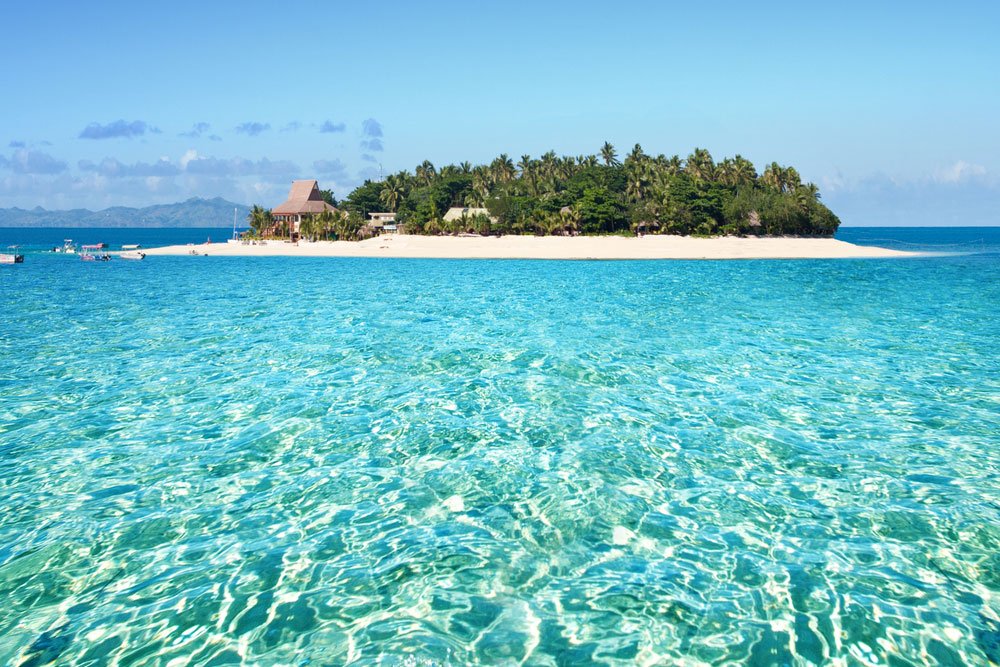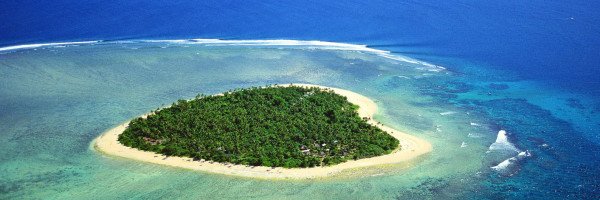Understanding the Importance of Sustainability in Fiji’s Beach Markets
Fiji’s beach markets are not only vibrant hubs of local culture and commerce but also play a crucial role in promoting sustainability. The market scene in Fiji is characterized by its abundance of local produce, handcrafted goods, and a strong sense of community. However, as tourism flourishes, the need for eco-friendly practices becomes even more essential. Sustainable practices in these markets help preserve the rich biodiversity of the islands and maintain the natural beauty that attracts visitors from around the world. The integration of sustainable methods in Fiji’s beach markets involves utilizing local resources efficiently, minimizing waste, and reducing the carbon footprint. For example, local vendors often use biodegradable materials for packaging, such as coconut leaves, instead of plastic. This not only helps reduce pollution but also showcases traditional Fijian craftsmanship. Moreover, many market stalls promote organic farming methods, encouraging consumers to choose fresh, pesticide-free produce. Similar practices can be observed in New Zealand, where local farmers’ markets emphasize organic and seasonal products. New Zealanders are increasingly aware of the importance of supporting local businesses and opting for eco-friendly products. By adopting similar sustainable practices in Fiji’s beach markets, we can contribute to a more environmentally responsible tourism model that benefits both the local community and the planet. For more information about Fiji’s vibrant markets, check out Fiji Islands.Eco-Conscious Vendors: Leading by Example
One of the most inspiring aspects of Fiji’s beach markets is the presence of eco-conscious vendors who prioritize sustainability in their business practices. These individuals are passionate about promoting environmentally friendly products and educating consumers on the importance of sustainable living. Many of them participate in local initiatives aimed at reducing waste and protecting marine life. For instance, some vendors specialize in selling natural skincare products made from local ingredients, such as coconut oil and sea salt. These products are not only eco-friendly but also support the local economy. Additionally, many vendors have adopted a “bring your own container” policy, encouraging customers to bring reusable bags, jars, or containers for purchases. This practice significantly reduces single-use plastics and fosters a culture of sustainability. In New Zealand, similar initiatives can be found at markets where vendors embrace zero-waste practices. By learning from each other, Fiji’s beach markets and New Zealand’s farmers’ markets can work together to create a more sustainable future. Supporting these vendors in Fiji not only benefits the environment but also enriches the travel experience, allowing visitors to connect more deeply with the local culture. To explore more about Fiji’s eco-friendly market scene, visit Fiji Islands.Local Produce and Sustainable Agriculture
The foundation of Fiji’s beach markets lies in their rich array of locally sourced produce. Farmers and fishermen in Fiji have long practiced sustainable agriculture and fishing methods, which are vital for maintaining the health of the ecosystem. By prioritizing seasonal produce and traditional farming techniques, these local producers contribute to food security and the preservation of local biodiversity. For example, many farmers in Fiji utilize permaculture practices, which emphasize the creation of self-sustaining agricultural ecosystems. This method not only enhances soil health but also reduces the need for chemical fertilizers and pesticides. Additionally, local fishermen often practice traditional fishing methods that minimize bycatch and protect fragile marine habitats. In New Zealand, the emphasis on sustainable agriculture has gained significant traction. Farmers are increasingly adopting organic practices and engaging in initiatives that support biodiversity, such as planting native trees and creating wildlife corridors. By learning from Fiji’s agricultural practices and promoting local produce, both regions can benefit from enhanced food security and a healthier environment. To discover more about Fiji’s beach markets, check out Fiji Islands.Waste Reduction Strategies in Fiji’s Beach Markets
Waste management is a critical aspect of sustainability, and Fiji’s beach markets are increasingly adopting waste reduction strategies. Many market organizers and vendors are aware of the environmental impact of waste and are taking steps to minimize it. This includes initiatives like composting organic waste, recycling materials, and reducing single-use plastics. One effective strategy employed in Fiji’s beach markets is the implementation of “green bins” for compostable waste. Vendors are encouraged to separate their compostable materials, which are then collected by local organizations for processing. This not only diverts waste from landfills but also produces nutrient-rich compost that can be returned to the soil, promoting healthy growth for local crops. New Zealand has also made significant strides in waste reduction, with many communities adopting zero-waste principles. By sharing successful waste management strategies, Fiji and New Zealand can inspire each other to create cleaner, more sustainable market environments. Visitors to Fiji’s beach markets can actively participate in these initiatives by making conscious choices about their waste. For more insights into the sustainable practices in Fiji, visit Fiji Islands.Community Engagement and Education
Community engagement is a cornerstone of sustainable practices in Fiji’s beach markets. Local vendors and market organizers often collaborate to educate both residents and visitors about the importance of sustainability. Workshops, demonstrations, and informational campaigns are frequently held to raise awareness and inspire individuals to adopt eco-friendly habits. For example, some markets offer cooking classes that focus on using local ingredients and minimizing food waste. Participants learn about the nutritional benefits of seasonal produce and how to prepare delicious meals that celebrate Fijian culture. Additionally, market leaders often invite local environmental organizations to share their knowledge on topics such as marine conservation, waste management, and sustainable tourism. In New Zealand, community engagement plays a vital role in promoting sustainability as well. Farmers’ markets frequently host educational events, where consumers can learn about the origins of their food and the importance of supporting local farmers. By fostering a sense of community and collaboration, both Fiji and New Zealand can work towards a more sustainable future. To learn more about Fiji’s efforts in community engagement, check out Fiji Islands.The Role of Tourism in Promoting Sustainable Practices
Tourism is a significant driver of Fiji’s economy, and the beach markets play an essential role in attracting visitors to the islands. However, with this influx of tourists comes the responsibility to promote sustainable practices that protect the environment and benefit local communities. Many beach markets in Fiji have begun to embrace eco-friendly initiatives as a way to showcase their commitment to sustainability. For example, some markets have introduced eco-tourism experiences, where visitors can participate in guided tours of local farms or fishing communities. These experiences not only educate tourists about sustainable practices but also provide economic opportunities for locals. By supporting these initiatives, tourists can contribute to the preservation of Fiji’s unique culture and environment. In New Zealand, the tourism industry has also made strides towards sustainability, with eco-friendly accommodations and experiences becoming increasingly popular. By sharing best practices and collaborating on sustainable tourism initiatives, Fiji and New Zealand can create a model for responsible travel that benefits both the environment and local communities. To explore more about Fiji’s sustainable tourism efforts, visit Fiji Islands.Future Outlook: Building a Sustainable Beach Market Ecosystem
The future of Fiji’s beach markets hinges on the continued commitment to sustainable practices and innovation. As awareness of environmental issues grows, both vendors and consumers are increasingly prioritizing eco-friendly options. The ongoing collaboration between local communities, government agencies, and environmental organizations is essential for building a resilient and sustainable market ecosystem. Future initiatives may include the expansion of green certifications for vendors, which would encourage more businesses to adopt sustainable practices. Additionally, increased investment in infrastructure, such as waste management systems and renewable energy sources, can further enhance the sustainability of beach markets. New Zealand’s experience in sustainable market practices can serve as a valuable resource for Fiji as they navigate the challenges of growth and sustainability. By fostering a culture of collaboration and knowledge-sharing, both regions can work towards a more sustainable future for their beach markets. To learn more about Fiji’s evolving market scene, check out Fiji Islands.FAQs
What are some eco-friendly practices being implemented in Fiji’s beach markets?
Fiji’s beach markets are embracing eco-friendly practices such as reducing plastic usage, promoting the sale of locally sourced food, and encouraging vendors to use biodegradable packaging. Many markets also host workshops on sustainable fishing and farming to educate both vendors and consumers.
How do the beach markets contribute to the local economy in Fiji?
The beach markets serve as a vital source of income for local farmers and artisans, providing them with a platform to sell their products directly to consumers. This practice not only supports local economies but also fosters a sense of community and encourages the use of sustainable practices among vendors.
Are there any specific initiatives aimed at reducing waste in Fiji’s beach markets?
Yes, many beach markets in Fiji have initiated waste reduction programs that include recycling stations, composting organic waste, and encouraging visitors to bring their own reusable bags. Some markets also collaborate with NGOs to promote environmental awareness and waste management strategies.
What types of products are commonly found in Fiji’s beach markets?
Fiji’s beach markets typically feature a variety of products, including fresh fruits and vegetables, handmade crafts, traditional Fijian textiles, and eco-friendly souvenirs. Many vendors focus on sustainable goods, such as organic produce, to align with the growing demand for environmentally responsible products.
How can tourists participate in sustainable practices while visiting these markets?
Tourists can engage in sustainable practices by supporting local vendors, choosing products with minimal or no packaging, and being mindful of their waste. Additionally, participating in workshops or activities that promote environmental conservation can enhance their experience while contributing positively to the local community.
What role does education play in promoting sustainability at Fiji’s beach markets?
Education is key in promoting sustainability at Fiji’s beach markets. Many markets offer informational sessions and demonstrations on sustainable agricultural practices, waste management, and the importance of preserving local ecosystems. This educational approach helps raise awareness among vendors and consumers alike.
Can you provide examples of successful eco-friendly vendors in Fiji’s beach markets?
Several vendors in Fiji’s beach markets have successfully adopted eco-friendly practices. For instance, some sell organic produce grown without pesticides, while others create handmade crafts from recycled materials. These vendors not only offer unique products but also serve as role models for sustainable practices within the community.
References
- Fiji Islands Official Tourism Website – Discover Fiji’s commitment to sustainable tourism and eco-friendly practices in its vibrant beach market scene.
- World Wildlife Fund – Fiji – An overview of conservation efforts and sustainable practices in Fiji, highlighting the importance of preserving its natural beauty.
- Sustainable Fiji – A platform dedicated to promoting sustainable practices and eco-friendly businesses across Fiji, particularly in coastal areas.
- Ecotourism Australia – Insights on ecotourism practices and sustainable tourism in Fiji, showcasing eco-conscious beach market initiatives.
- UNESCO – Education for Sustainable Development in Fiji – Information on educational programs and initiatives aimed at promoting sustainability in Fiji’s tourism sector.







